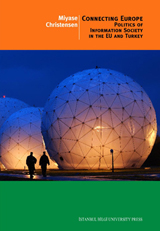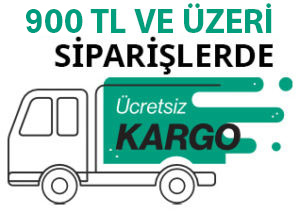
Connecting Europe: Politics of Information Society In the EU and Turkey
During the 1990s, in parallel with new media-related initiatives in the US and the Asia-Pacific region, the EU launched its own information society policies in an effort to become, “the most competitive knowledge-based economy in the world by 2010.” In addition to full members, the task of achieving a “European Information Society for all” was also expected of candidate countries, including Turkey.
Acronyms
Acknowledgements
CHAPTER I Introduction: Contextualizing “The Information Revolution” in an Age of Globalization
Communication Policy in a Global Milieu
The Political Economy of Communication
Commodification and Spatialization
PTT Systems in Developing Countries and Europe, and the Liberalization of Telecommunications Markets
The Role of the State: Implications of the Globalization and Liberalization of Telecoms and Information Sectors
Structure of the Book
CHAPTER II Mapping the Terrain: Towards a European Information Society
Information Society Visions of the EU: Past to Present
INFO2000
Promotion of the Information Society in Europe (PROMISE)
E-Europe: An Information Society for All
E-Content
The Current Context
CHAPTER III Politics of Change: Telecommunications in Turkey
Research Scope
Contextualizing the Debate: The Development of Telecoms Infrastructure and Services in Turkey in the
Post-1980 Era
Developments in the Policy, Legal and Regulatory Aspects of Turkish Telecoms Sector in the 1990s:
Output And Implementation
Policy Shifts and Legal Amendments
Regulation
Development of Internet Infrastructure
Mobile Communications
Interconnection and National Roaming
Universal Service Obligation (USO)
Current Situation
Discourse Surrounding the Telecoms Debate: Perspectives and Issues as Raised by Stakeholders
Privatization of TT: Issues and Drawbacks
Telecom Policies of Post-Özal Governments
Institutional Problems and Corporatization of TT
Liberalization of the ISP and Mobile Sectors
Telecoms Market Regulation
In Summary
CHAPTER IV Information Society Policies of Turkey Within the Context of the EU
Steps Towards Building and Information Society in Turkey: Until 2003
Science and Technology Policy in Turkey
The Inception of the TUENA Project and Turkey’s Agenda in Information Society Development Between 1996 and 2000
TUNEA’s Findings and Strategy Prescriptions
Impact and Implementation of the Project: Conflict Over TUENA
On TUENA and the Early Efforts of IS Policymaking in Turkey
E-Europe+
From E-Europe+ to E-Turkey
Implementation of E-Turkey
Informatics Council
The National ICT Sector in the Early 2000s: Issues and Stakes
Emergence of the ISP Sector in Turkey
Other Areas of Conflict
Current Situation: How Far Has Turkey Come in Pursuit of Becoming an Information Society?
In Summary
CHAPTER V Has Europe Found its Communication Policy Paradigm?
National Policymaking and the Forces of Globalization and Regionalization
Between Supranational and National: New Spaces of Politics, Economy and Citizenship
Has Europe Found its Paradigm?
Bibliography
Miyase Christensen
Miyase Christensen is Associate Professor and Director of the Master’s Programme in Global Media Studies in the Department of Media and Communication Studies at Karlstad University, Sweden. Christensen obtained her MA and Ph.D. degrees from the Department of Radio-TV-Film at The University of Texas at Austin. She is the editor/co-editor of a number of books, including Shifting Landscapes: Film and Media in European Context (2008); Online Territories: Globalization, Mediated Practice and Social Space (2010); and, Understanding Media and Culture in Turkey: Structues, Spaces, Voices (2010), and the author of numerous international articles. Christensen participates in a number of international networks and projects that explore sociocultural aspects of media and technology, and her research focuses on social theory and trans-nationalization processes; social surveillance and the media; European media and information society; and politics of popular communication.
